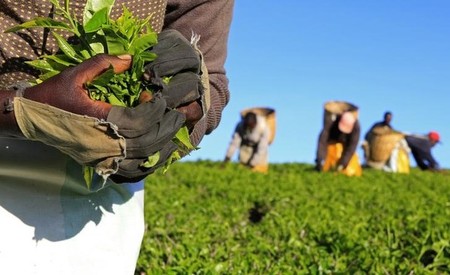NAIROBI (Reuters) – Several weeks of strikes by tea pickers in Kenya’s biggest estates in June and July are unlikely to disrupt production enough to warrant a change to the forecast for the year, the agriculture industry regulator said on Thursday.
Tea pickers were awarded a 30 percent pay increase by a court in June but went on strike when tea estate owners refused to pay, saying it would drive up costs and deter investment.
Tens of thousands of pickers in the major growing regions of Nandi and Kericho went on strike in protest. Pickers have since returned to work after the Labour Ministry brokered a deal allowing the award to be implemented in two phases.
The East African nation, the world’s No. 1 exporter of black tea, expects output to jump to as much as 450 million kg this year, thanks to good rainfall, from 399 million in 2015. Tea is one of Kenya’s top foreign-exchange earners.
“There is no change to the output forecast,” Alfred Busolo, acting director-general of the Agricultural, Fisheries and Food Authority told Reuters, adding that the impact of the stoppages was “minimal”.
The government is working to remove numerous levies and taxes on the tea industry to make its exports more competitive.
The labour stoppages had mainly affected big tea estates in the Rift Valley region, which account for 40 percent of production. The rest comes from small-scale farms.
(Reporting by Duncan Miriri; Editing by Edmund Blair and Dale Hudson)




